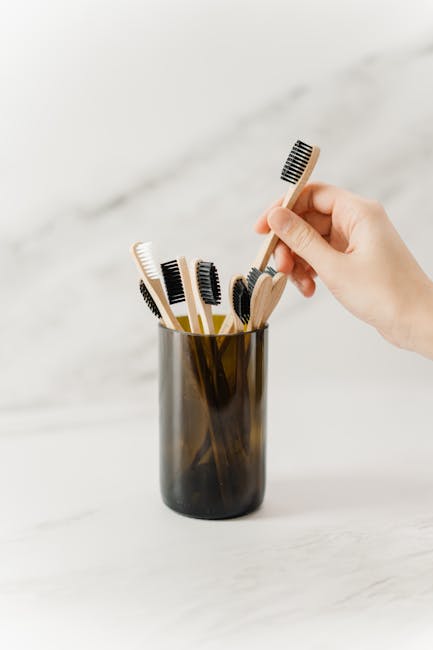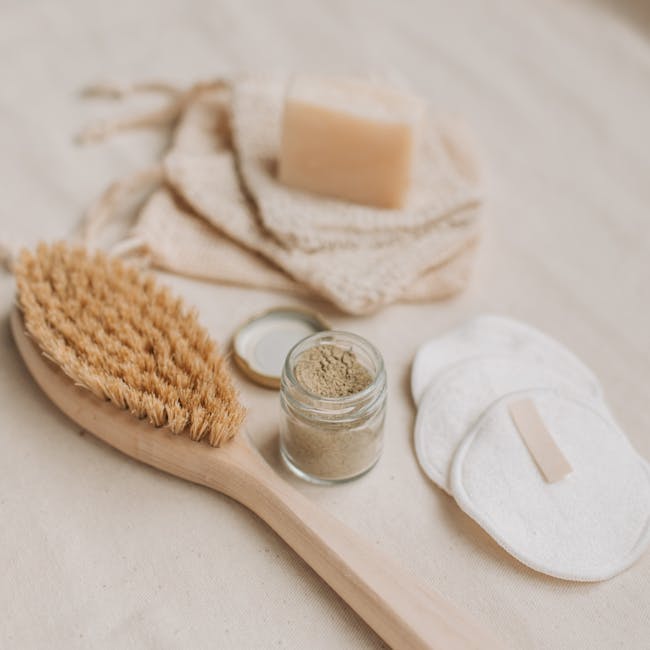Integrating self-care into a busy work schedule might seem like trying to fit a square peg into a round hole, but it’s not impossible. In fact, it’s essential for maintaining your well-being and productivity. Imagine trying to drive a car on an empty tank; that’s what life feels like without self-care. So, buckle up and let’s explore how you can fuel your life with self-care, even when your schedule is jam-packed.
Key Takeaways
- Self-care is crucial for maintaining mental and physical health.
- Prioritizing and scheduling self-care activities can enhance productivity.
- Setting boundaries is essential to protect self-care time.
- Sensory rituals can be integrated into daily routines for relaxation.
- Work-life flow offers a more flexible approach than traditional balance.
Understanding Self-Care
Definition of Self-Care
Self-care is like a personal maintenance routine for your mind, body, and soul. It’s about taking the time to do things that help you live well and improve both your physical health and mental well-being. Think of it as the oil change your car needs to run smoothly.
Importance of Self-Care in a Busy Schedule
In the hustle and bustle of daily life, self-care often takes a backseat. But neglecting it can lead to burnout, stress, and even health issues. By integrating self-care into your routine, you can boost your energy, improve your mood, and enhance your overall quality of life.
Common Misconceptions About Self-Care
Many people think self-care is a luxury or something that requires a lot of time and money. But that’s not true. Self-care can be as simple as taking a few deep breaths, enjoying a cup of tea, or going for a short walk. It’s about finding what works for you and making it a priority.

Self-Care Tips for Busy Professionals
Prioritizing Self-Care Activities
To make self-care a part of your life, you need to prioritize it. Start by identifying activities that rejuvenate you, whether it’s reading a book, meditating, or exercising. Then, schedule these activities just like you would any other important appointment. For more tips on prioritizing self-care, check out this guide.
Incorporating Self-Care into Daily Routines
Integrating self-care into your daily routine doesn’t have to be complicated. You can start by setting aside a few minutes each day for activities that make you feel good. For example, you might meditate for five minutes in the morning or take a short walk during your lunch break. Learn more about incorporating self-care into your routine here.
Setting Boundaries to Protect Self-Care Time
Setting boundaries is crucial to protecting your self-care time. This might mean saying no to extra work or turning off your phone during your self-care activities. Remember, it’s okay to put yourself first sometimes. After all, you can’t pour from an empty cup.

Schedule ‘You’ Time
Identifying Personal Needs and Preferences
To create a self-care schedule that works for you, start by identifying your personal needs and preferences. What activities make you feel relaxed and recharged? What times of day do you feel most stressed or tired? Use this information to tailor your self-care routine.
Creating a Flexible Self-Care Schedule
A flexible self-care schedule is key to making it work with a busy lifestyle. Instead of rigidly scheduling every minute, allow for some flexibility. This way, you can adapt your routine to fit your changing needs and circumstances.
Utilizing Breaks and Downtime Effectively
Make the most of your breaks and downtime by using them for self-care. Instead of scrolling through social media, try doing a quick meditation or stretching session. These small moments of self-care can add up and make a big difference in your overall well-being.

Sensory Self-Care Rituals Throughout the Day
Morning Rituals to Start the Day Right
Mindful Breathing Exercises
Start your day with mindful breathing exercises to set a calm and focused tone. Just a few minutes of deep breathing can help you feel centered and ready to tackle the day.
Aromatherapy Practices
Incorporate aromatherapy into your morning routine by using essential oils like lavender or peppermint. These scents can help you feel more awake and refreshed.
Midday Rituals to Recharge
Quick Meditation Sessions
Take a few minutes during your lunch break to do a quick meditation session. This can help clear your mind and recharge your energy for the rest of the day.
Stretching and Movement Breaks
Incorporate stretching and movement breaks into your day to relieve tension and boost your mood. Even a short walk around the office can make a big difference.
Evening Rituals to Wind Down
Relaxing Bath or Shower
End your day with a relaxing bath or shower to wash away the stress of the day. Use calming scents like chamomile or eucalyptus to enhance the experience.
Journaling or Reflection
Spend a few minutes journaling or reflecting on your day before bed. This can help you process your thoughts and emotions, making it easier to relax and fall asleep.

Work-Life Balance for Mothers
Challenges Faced by Working Mothers
Working mothers often face unique challenges when it comes to balancing work and family life. Juggling multiple responsibilities can be overwhelming and leave little time for self-care.
Strategies for Balancing Work and Family Life
To achieve a better balance, working mothers can try strategies like delegating tasks, setting boundaries, and prioritizing self-care. It’s important to remember that it’s okay to ask for help and take time for yourself.
Empowering Techniques for Overcoming Success Guilt
Many working mothers experience success guilt, feeling guilty for pursuing their careers while raising a family. To overcome this, focus on the positive impact you’re making in both areas and remind yourself that it’s okay to be successful.

Attend to Self-Care’s Many Forms
Physical Self-Care
Physical self-care involves activities that improve your physical health, like exercising, eating well, and getting enough sleep. These activities can help you feel more energized and resilient.
Emotional Self-Care
Emotional self-care involves activities that help you process and express your emotions, like journaling, talking to a friend, or practicing mindfulness. These activities can help you feel more balanced and in control.
Social Self-Care
Social self-care involves activities that nurture your relationships, like spending time with loved ones or joining a club. These activities can help you feel more connected and supported.
Mental Self-Care
Mental self-care involves activities that stimulate your mind, like reading, solving puzzles, or learning something new. These activities can help you feel more focused and engaged.
How to Ditch Work-Life Balance and Embrace Work-Life Flow
Understanding Work-Life Flow
Work-life flow is a more flexible approach to balancing work and personal life. Instead of trying to keep everything perfectly balanced, work-life flow allows for a more fluid integration of work and personal activities.
Benefits of Work-Life Flow Over Traditional Balance
Work-life flow offers several benefits over traditional balance, including increased flexibility, reduced stress, and improved well-being. By embracing work-life flow, you can create a more harmonious and fulfilling life.
Practical Steps to Achieve Work-Life Flow
To achieve work-life flow, start by identifying your priorities and creating a flexible schedule that allows for both work and personal activities. Be open to adjusting your routine as needed and focus on finding a rhythm that works for you.

Overcoming Success Guilt
Recognizing Success Guilt in Professional Settings
Success guilt is a common feeling among professionals who achieve success but feel guilty for it. This guilt can stem from a fear of outshining others or feeling undeserving of success.
Strategies for Managing and Overcoming Guilt
To manage and overcome success guilt, focus on your accomplishments and the positive impact you’re making. Remind yourself that you deserve success and that it’s okay to celebrate your achievements.
Building a Supportive Network
Building a supportive network of friends, family, and colleagues can help you overcome success guilt. Surround yourself with people who encourage and support your success.
Behind the Scenes: Balancing Leadership and Well-being
Personal Stories and Insights
Many leaders struggle to balance their responsibilities with their well-being. By sharing personal stories and insights, they can inspire others to prioritize self-care and find a balance that works for them.
Tips for Maintaining Well-being During Busy Periods
During busy periods, it’s important to prioritize self-care and find ways to maintain your well-being. This might involve setting boundaries, delegating tasks, or taking breaks to recharge.
Lessons Learned from Balancing Leadership and Self-Care
Leaders who successfully balance their responsibilities with self-care often learn valuable lessons about the importance of prioritizing their well-being. By sharing these lessons, they can inspire others to do the same.
In conclusion, integrating self-care into a busy work schedule is not only possible but essential for maintaining your well-being and productivity. By prioritizing self-care, setting boundaries, and embracing work-life flow, you can create a more balanced and fulfilling life. Remember, self-care is not a luxury; it’s a necessity. So, take the time to care for yourself, and watch as your life transforms for the better.
Embrace Self-Care: Your Go-To FAQ for Integrating Self-Care Into a Busy Work Schedule
Why is self-care important for a busy work schedule?
Self-care is crucial because it helps maintain your physical, mental, and emotional health, which can enhance productivity and reduce stress. By prioritizing self-care, you can prevent burnout and improve your overall well-being, making you more effective in both personal and professional realms.
How can I start incorporating self-care into my daily routine?
Begin by identifying small, manageable self-care activities that you can integrate into your day. This could be as simple as taking a five-minute break to stretch, practicing deep breathing exercises, or setting aside time for a hobby. The key is consistency and gradually building these habits into your routine.
What are some quick self-care practices I can do at work?
Quick self-care practices at work include taking short walks, practicing mindfulness or meditation for a few minutes, staying hydrated, and ensuring you have healthy snacks on hand. These small actions can help refresh your mind and body, making you more focused and productive.
How can I manage my time better to include self-care?
Effective time management involves setting priorities and boundaries. Use tools like planners or digital calendars to schedule self-care activities as non-negotiable appointments. Learn to say no to tasks that can be delegated or postponed, and focus on what truly matters to you.
What role does technology play in self-care?
Technology can be both a boon and a bane for self-care. Use it to your advantage by utilizing apps for meditation, exercise, or time management. However, be mindful of screen time and ensure you have digital detox periods to disconnect and recharge.
Can self-care improve my work performance?
Absolutely! Regular self-care can lead to improved concentration, creativity, and problem-solving skills. By taking care of yourself, you are better equipped to handle work challenges, leading to enhanced performance and job satisfaction.
How do I overcome guilt associated with taking time for self-care?
Understand that self-care is not selfish; it’s essential for your well-being. Reframe your mindset to see self-care as a necessary investment in your health and productivity. Remind yourself that by taking care of yourself, you are better able to support others and fulfill your responsibilities.
What are some self-care activities that can be done in under 10 minutes?
In under 10 minutes, you can engage in activities such as deep breathing exercises, a short walk, listening to your favorite song, or practicing gratitude. These quick activities can provide a mental reset and boost your mood.
How can I maintain self-care practices when traveling for work?
When traveling, plan ahead by packing self-care essentials like a travel yoga mat, healthy snacks, or a good book. Stick to your routine as much as possible and explore new self-care activities that align with your travel schedule, such as exploring local parks or trying a new fitness class.
What are some signs that I need to prioritize self-care more in my schedule?
Signs that you need more self-care include feeling constantly fatigued, irritable, or overwhelmed. If you notice a decline in your physical health, such as frequent headaches or insomnia, or if you’re struggling to concentrate, it’s time to reassess your schedule and prioritize self-care.



